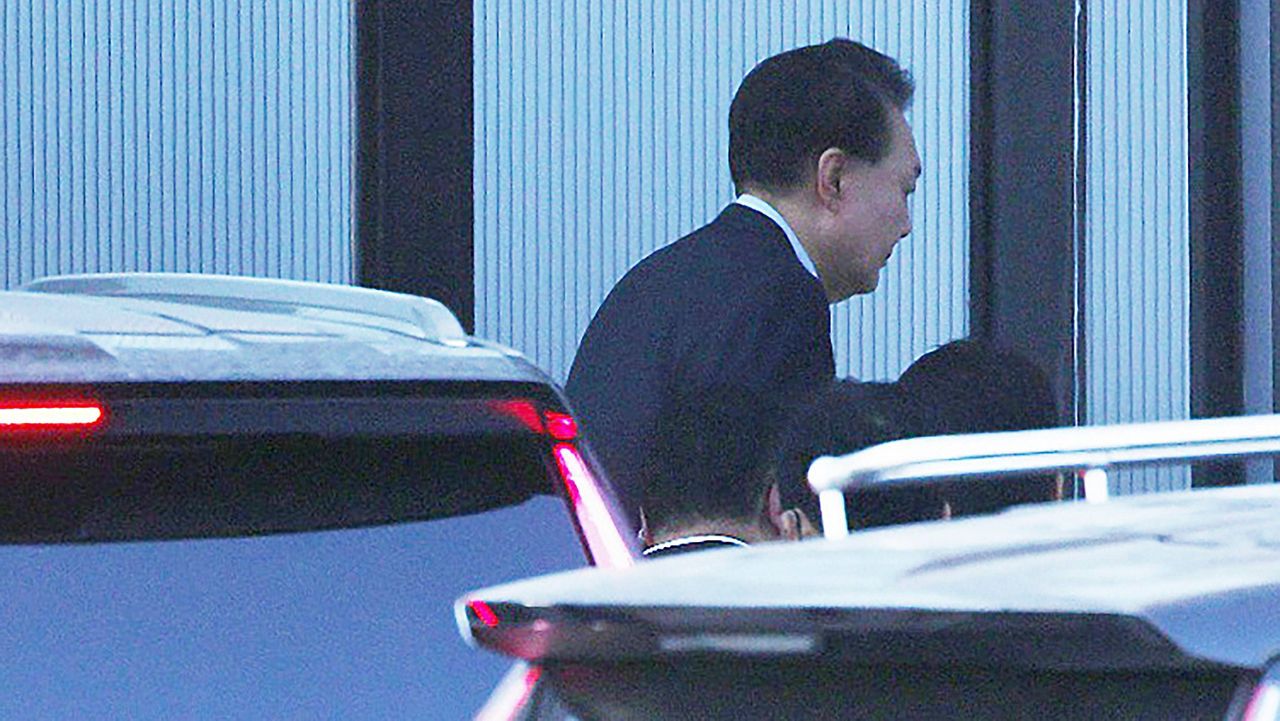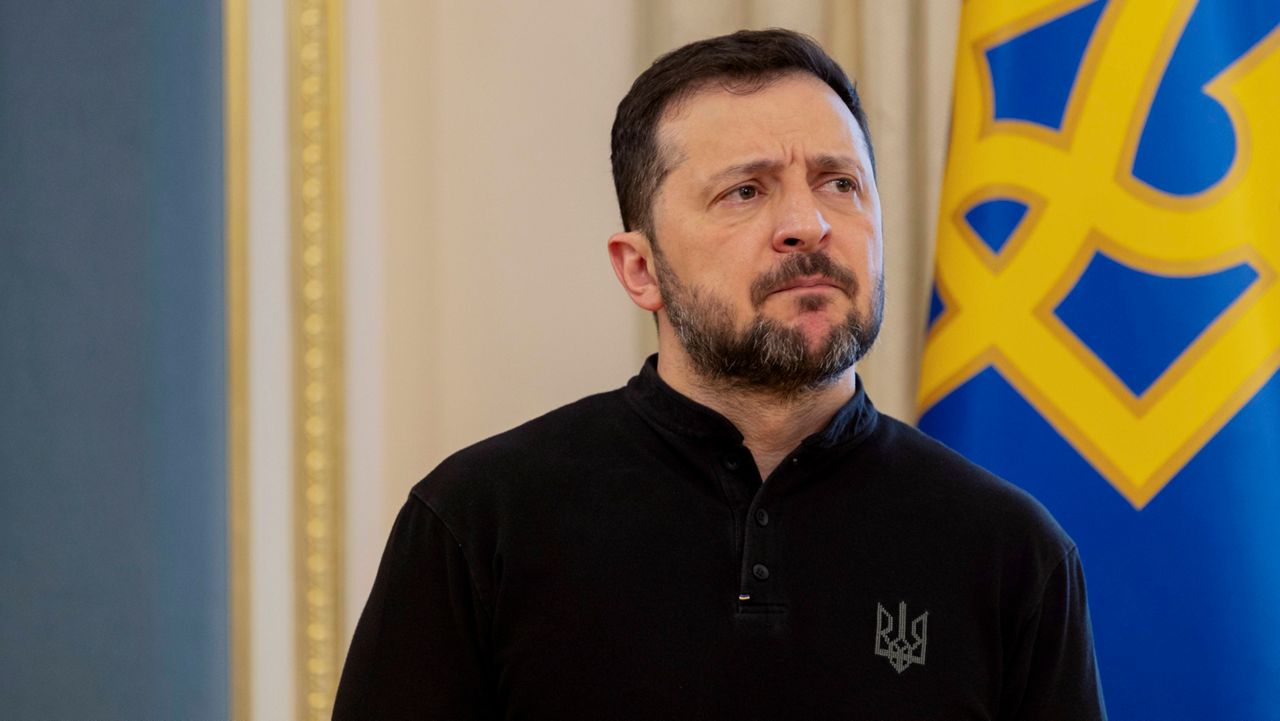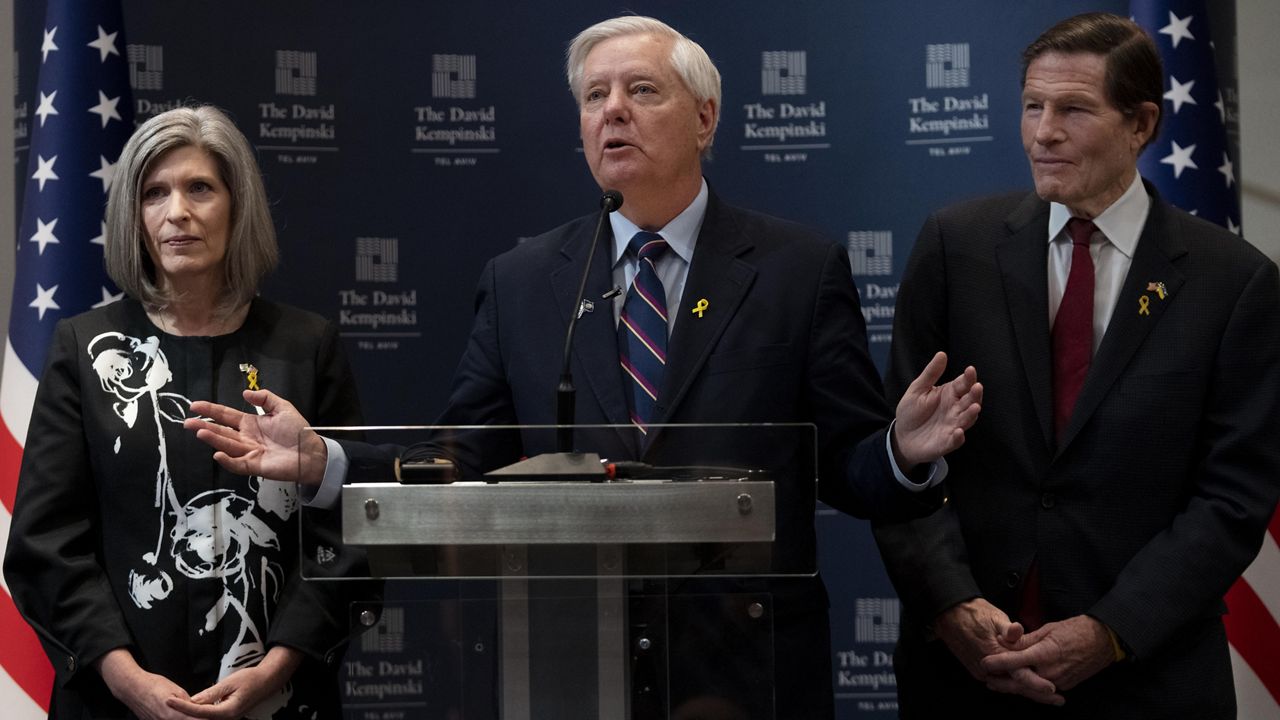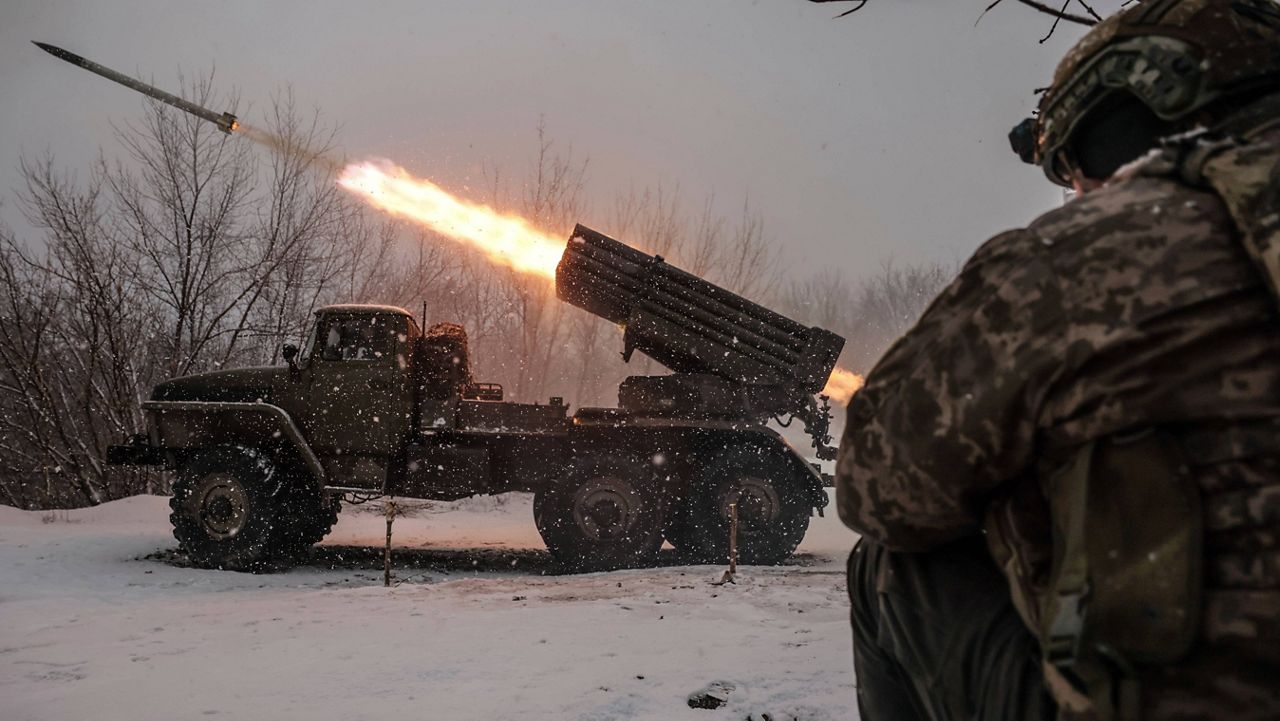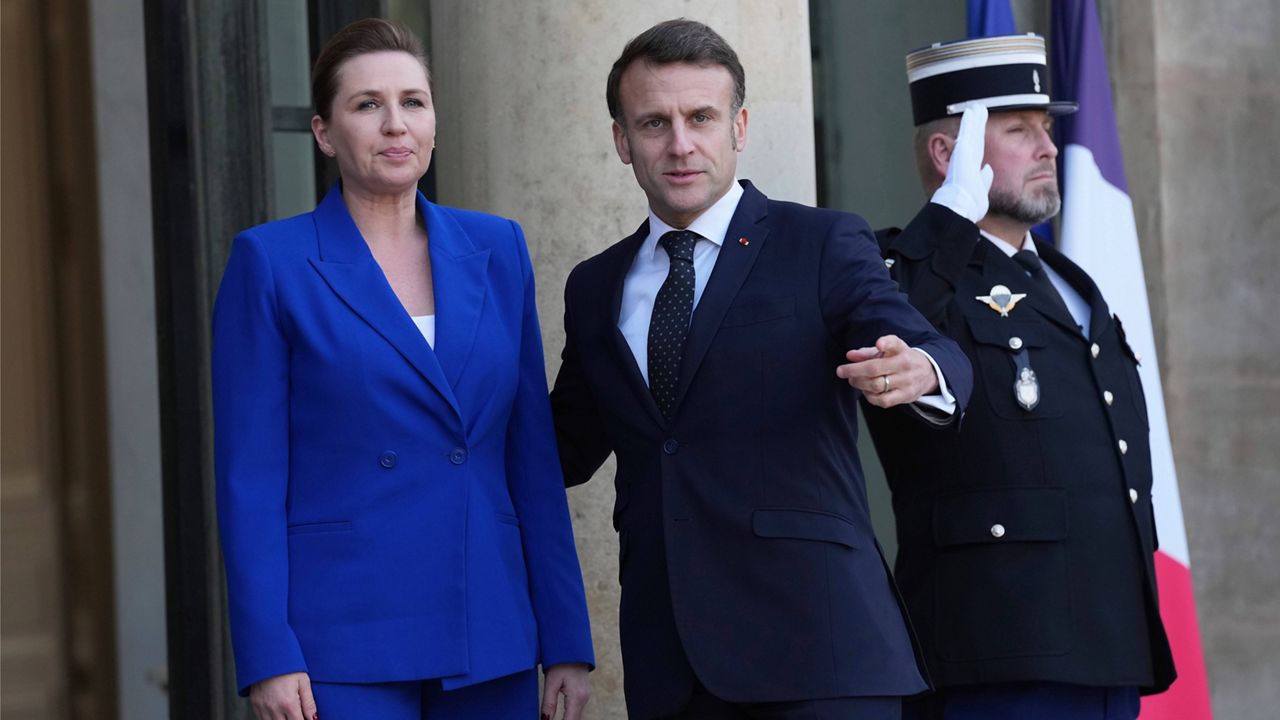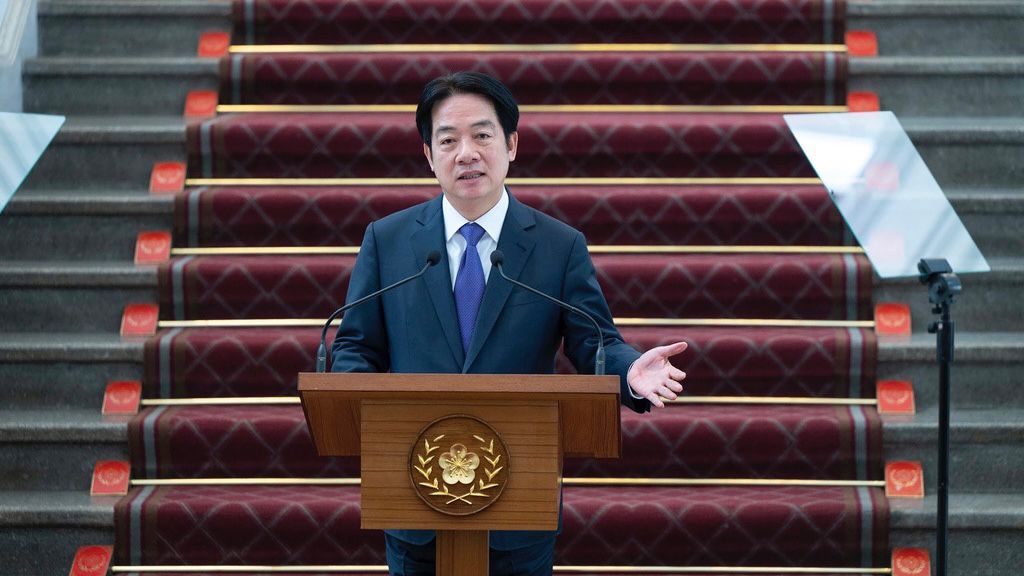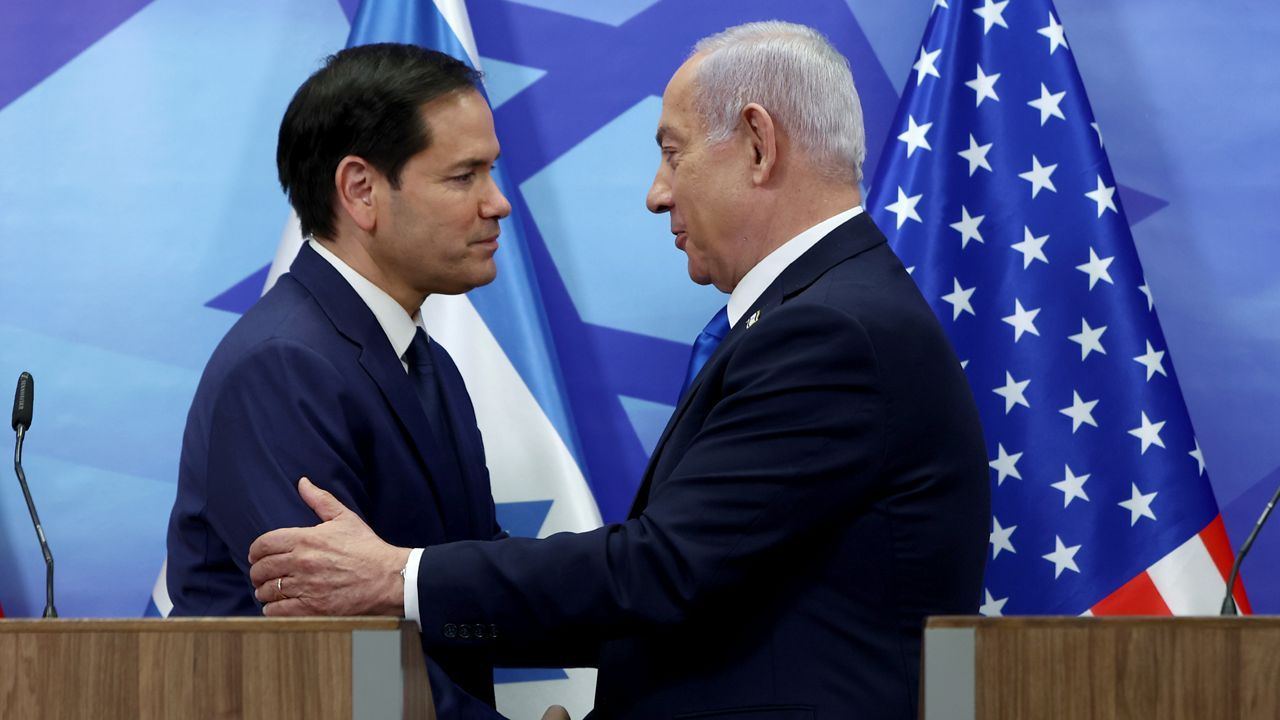SEOUL, South Korea — South Korea's impeached president, Yoon Suk Yeol, was sent to a detention center near Seoul on Wednesday night, after being questioned by anti-corruption officials who took him into custody over his imposition of martial law last month.
What You Need To Know
- Impeached South Korean President Yoon Suk Yeol has been taken to a detention center near Seoul over his imposition of martial law last month
- Yoon underwent about 10 hours of questioning on Wednesday by the country's anti-corruption agency after he was detained at his presidential residence earlier in the day
- He recorded a video message before he was escorted to the headquarters of the anti-corruption agency
- Yoon insists his declaration was a legitimate act of governance after the liberals leading parliament thwarted his agenda
Yoon was detained in a major law enforcement operation at the presidential compound earlier in the day. Yoon defiantly insisted that the country's anti-corruption agency, which led the raid with police, didn't have the authority to investigate his actions, but said he complied to prevent violence.
Yoon, the country's first sitting president to be apprehended, now faces the prospect of a lengthy prison term over potential rebellion charges.
In a video message recorded shortly before he was escorted to the headquarters of the anti-corruption agency, Yoon lamented the "rule of law has completely collapsed in this country."
Yoon had been holed up in the Hannam-dong residence in the capital, Seoul, for weeks while vowing to "fight to the end" the efforts to oust him. He has justified his declaration of martial law Dec. 3 as a legitimate act of governance against an "anti-state" opposition employing its legislative majority to thwart his agenda.
The Corruption Investigation Office for High-Ranking Officials said Yoon was brought into custody about five hours after investigators arrived at the presidential compound and about three hours after they successfully entered the residence, in their second attempt to detain him over his imposition of martial law.
A series of black SUVs, some equipped with sirens, were seen leaving the presidential compound with police escorts. Yoon was later seen stepping out of a vehicle after arriving at the agency's office in the nearby city of Gwacheon.
Hundreds of Yoon's conservative supporters rallied near the anti-corruption agency's office as he underwent questioning, shouting slogans and holding signs that read: "We will fight alongside President Yoon Suk Yeol."
Also on Wednesday, an unidentified man was in life-threatening condition after an apparent self-immolation near the site, according to the Gyeonggi provincial fire department.
After he was questioned for more than 10 hours, a vehicle carrying Yoon arrived at a detention center in Uiwang, near Seoul, escorted by police and presidential security vehicles.
What's next?
Yoon could be held in custody for weeks, possibly even months or longer.
The anti-corruption agency, which is leading a joint investigation with the police and the military over whether Yoon's martial law declaration amounted to an attempted rebellion, has 48 hours to request a court order for his formal arrest.
If it fails to do so, Yoon will be released. If Yoon is formally arrested, investigators can extend his detention to 20 days before transferring the case to public prosecutors for indictment.
If prosecutors indict Yoon on rebellion and abuse of power charges, which are the allegations examined by investigators, he could possibly remain under arrest until the initial court ruling, which is typically made within six months, said Park Sung-bae, an attorney specializing in criminal law.
Under South Korean law, the leader of a rebellion can face the death penalty or life imprisonment, if convicted.
"If the first court hands down a prison sentence, the detention simply continues," Park said. "If they sentence him to life imprisonment, for example, he continues serving that sentence straight through."
Yoon's defense minister, police chief and several top military commanders already had been arrested over their roles in the enforcement of martial law.
The detention warrant for Yoon, issued by the Seoul Western District Court, said there were substantial reasons to suspect that he committed crimes as a "ringleader of a rebellion."




